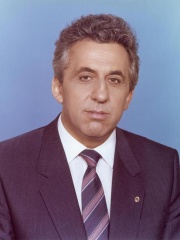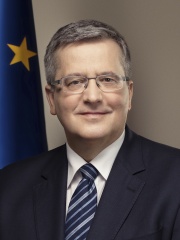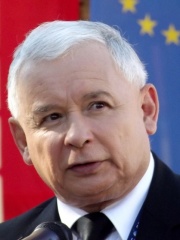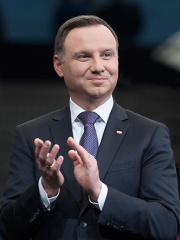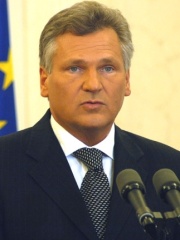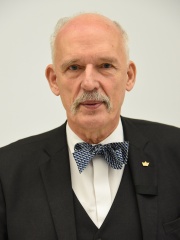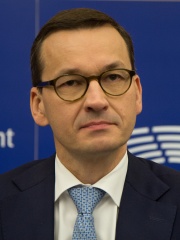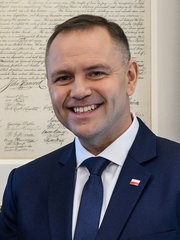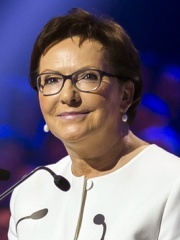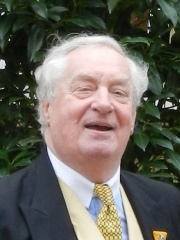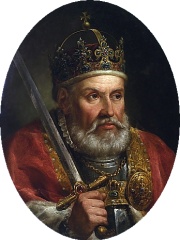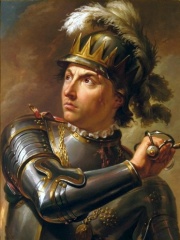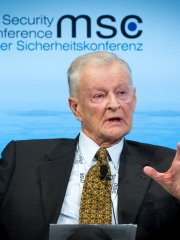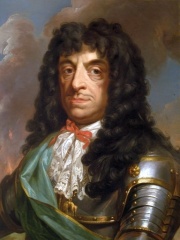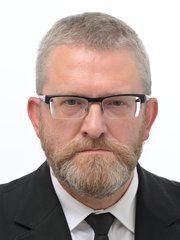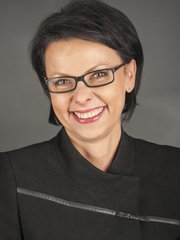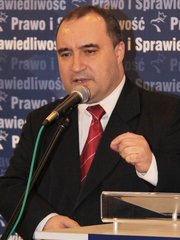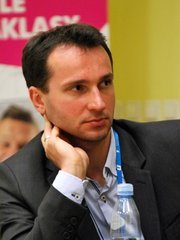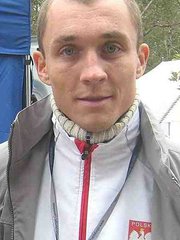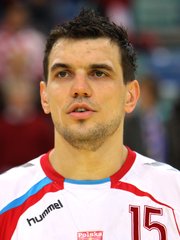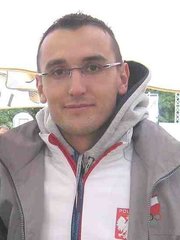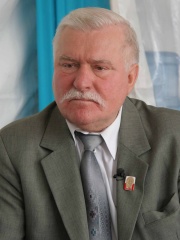
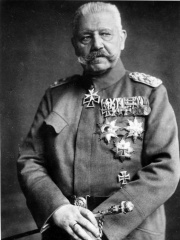
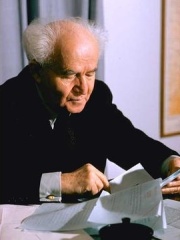
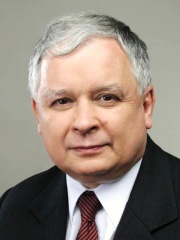
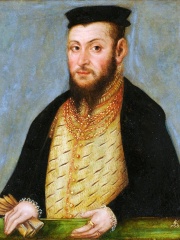
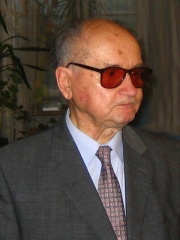
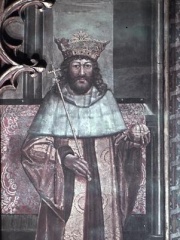
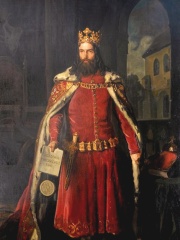
The Most Famous
POLITICIANS from Poland
This page contains a list of the greatest Polish Politicians. The pantheon dataset contains 19,576 Politicians, 278 of which were born in Poland. This makes Poland the birth place of the 13th most number of Politicians behind Greece, and India.
Top 10
The following people are considered by Pantheon to be the top 10 most legendary Polish Politicians of all time. This list of famous Polish Politicians is sorted by HPI (Historical Popularity Index), a metric that aggregates information on a biography's online popularity. Visit the rankings page to view the entire list of Polish Politicians.

1. Lech Wałęsa (b. 1943)
With an HPI of 82.76, Lech Wałęsa is the most famous Polish Politician. His biography has been translated into 152 different languages on wikipedia.
Lech Wałęsa (born 29 September 1943) is a Polish statesman, dissident and Nobel Peace Prize laureate who served as the president of Poland between 1990 and 1995. After winning the 1990 election, Wałęsa became the first democratically elected president of Poland since 1926 and the first-ever Polish president elected by popular vote. An electrician by trade, Wałęsa became the leader of the opposition Solidarity movement and led a successful pro-democratic effort, which in 1989 ended Communist rule in Poland and ushered in the end of the Cold War. While working at the Lenin Shipyard (now Gdańsk Shipyard), Wałęsa, an electrician, became a trade-union activist, for which he was persecuted by the government, placed under surveillance, fired in 1976 and arrested several times. In August 1980, he was instrumental in political negotiations that led to the ground-breaking Gdańsk Agreement between striking workers and the government. He co-founded the Solidarity trade-union, whose membership rose to over ten million. After martial law in Poland was imposed and Solidarity was outlawed, Wałęsa was arrested again. Released from custody, he continued his activism and was prominent in the establishment of the Round Table Agreement that led to the semi-free 1989 Polish parliamentary election and a Solidarity-led government. He presided over Poland's transition from Marxist–Leninist state socialism into a free-market capitalist liberal democracy, but his active role in Polish politics diminished after he narrowly lost the 1995 Polish presidential election. In 1995, he established the Lech Wałęsa Institute. Since 1980, Wałęsa has received hundreds of prizes, honors and awards from multiple countries and organizations worldwide. He was named the Time Person of the Year (1981) and one of Time's 100 most important people of the 20th century (1999). He has received over forty honorary degrees, including from Harvard University, Fordham University and Columbia University, as well as dozens of the highest state orders, including the Presidential Medal of Freedom, the Knight Grand Cross of the Order of the Bath, and the French Grand Cross of Legion of Honour. In 1989, Wałęsa was the first foreign non-head of state to address the Joint Meeting of the U.S. Congress. The Gdańsk Lech Wałęsa Airport has borne his name since 2004.

2. Paul von Hindenburg (1847 - 1934)
With an HPI of 81.91, Paul von Hindenburg is the 2nd most famous Polish Politician. His biography has been translated into 86 different languages.
Paul Ludwig Hans Anton von Beneckendorff und von Hindenburg (2 October 1847 – 2 August 1934) was a German military officer and statesman who led the Imperial German Army during World War I and later became President of Germany from 1925 until his death in 1934. He played a key role in the Nazi seizure of power in 1933 through his appointment of Adolf Hitler as Chancellor of Germany. Paul von Hindenburg was born to a family of minor Prussian nobility in the Grand Duchy of Posen. Upon completing his education as a cadet, he enlisted in the Third Regiment of Foot Guards. In this unit, Hindenburg saw combat during the Austro-Prussian and Franco-Prussian wars. In 1873, he was admitted to the prestigious War Academy in Berlin, where he studied before being appointed to the General Staff Corps. In 1885, he was promoted to major and became a member of the German General Staff. After teaching at the War Academy, Hindenburg rose to become a lieutenant general by 1900. In 1911, he retired from the military. After World War I began in 1914, Hindenburg was recalled and achieved fame on the Eastern Front as the victor of the Battle of Tannenberg. His continued success with battling the Russians in the east made him a national hero and the center of a pervasive cult of personality. By 1916, his popularity had risen to the point that he replaced General Erich von Falkenhayn as Chief of the Great General Staff. Thereafter, he and his deputy, General Erich Ludendorff, exploited Kaiser Wilhelm II's immense delegation of power to the Supreme Army Command to establish a de facto military dictatorship. Under their leadership, Germany secured Russia's defeat and achieved the largest advance on the Western Front since the early days of the war. However, after the United States entered the war on the side of the Allies, Germany's fortunes were sharply reversed after its army was decisively defeated in the Second Battle of the Marne and the Allies' Hundred Days Offensive. Following the armistice, Hindenburg stepped down as Chief of Staff, before retiring again in 1919. In 1925, Hindenburg returned to public life to become the second elected president of the Weimar Republic. Opposed to Hitler and the Nazi Party, Hindenburg nonetheless played a major role in the instability that resulted in their rise to power. After twice dissolving the Reichstag in 1932, Hindenburg agreed in January 1933 to appoint Hitler as chancellor in coalition with the German National People's Party. In response to the February 1933 Reichstag fire, Hindenburg approved the Reichstag Fire Decree which suspended various civil liberties. He likewise signed the Enabling Act of 1933 which gave the Nazi regime emergency powers. After Hindenburg died the following year, Hitler combined the presidency with the chancellery before declaring himself Führer (lit. 'Leader') of Germany and transforming the country into a totalitarian dictatorship.

3. David Ben-Gurion (1886 - 1973)
With an HPI of 81.57, David Ben-Gurion is the 3rd most famous Polish Politician. His biography has been translated into 104 different languages.
David Ben-Gurion ( ben GOOR-ee-ən; Hebrew: דָּוִד בֶּן־גּוּרִיּוֹן [daˈvid ben ɡuʁˈjon] ; born David Grün; 16 October 1886 – 1 December 1973) was the primary national founder and first prime minister of the State of Israel. As head of the Jewish Agency from 1935, and later president of the Jewish Agency Executive, he was the de facto leader of the Jewish community in Palestine, and largely led the movement for an independent Jewish state in Mandatory Palestine. Born in Płońsk, then part of Congress Poland, to Polish Jewish parents, he immigrated to the Palestine region of the Ottoman Empire in 1906. Adopting the name of Ben-Gurion in 1909, he rose to become the preeminent leader of the Jewish community in British-ruled Mandatory Palestine from 1935 until the establishment of the State of Israel in 1948, which he led until 1963 with a short break in 1954–55. Ben-Gurion's interest for Zionism developed early in his life, leading him to become a major Zionist leader, and the executive head of the World Zionist Organization in 1946. On 14 May 1948, he formally proclaimed the establishment of Israel, and was the first to sign the Israeli Declaration of Independence, which he had helped to write. Under Ben-Gurion's leadership, the 1948 Arab–Israeli War saw the uniting of the various Jewish militias into the Israel Defense Forces (IDF), the victory of Israel over the Arab League, and the expulsion and flight of a majority of the Palestinian Arab population. Subsequently, he became known as "Israel's founding father". Following the war, Ben-Gurion served as Israel's first prime minister and minister of defence. As prime minister, he helped build state institutions, presiding over national projects aimed at the development of the country. He also oversaw the absorption of Jewish immigrants. A major part of his foreign policy was improving relations with West Germany through a reparations agreement in compensation for Nazi confiscation of Jewish property during the Holocaust. In 1954, he resigned as prime minister and minister of defence but remained a member of the Knesset. He returned as minister of defence in 1955 after the Lavon Affair and the resignation of Pinhas Lavon. Later that year he became prime minister again, following the 1955 elections. He backed Israel's reprisal operations to Arab guerrilla attacks and its invasion of Egypt, along with Britain and France, during the Suez Crisis in 1956. He stepped down from office in 1963, and retired from political life in 1970. He then moved to his modest "hut" in Sde Boker, a kibbutz in the Negev desert, where he lived until his death. Posthumously, Ben-Gurion was named one of Time magazine's 100 Most Important People of the 20th century.

4. Lech Kaczyński (1949 - 2010)
With an HPI of 77.12, Lech Kaczyński is the 4th most famous Polish Politician. His biography has been translated into 98 different languages.
Lech Aleksander Kaczyński (18 June 1949 – 10 April 2010) was a Polish politician who served as the 4th president of Poland from 2005 to 2010, when he died in the Smolensk air disaster. Earlier he served as the city mayor of Warsaw from 2002 to 2005. Prior to these tenures, Kaczyński served as President of the Supreme Audit Office from 1992 to 1995 and later Minister of Justice and Public Prosecutor General in Jerzy Buzek's cabinet from 2000 until his dismissal in July 2001. Born in Warsaw, he starred in a 1962 Polish film, The Two Who Stole the Moon, with his identical twin brother Jarosław. Kaczyński was a graduate of law and administration of Warsaw University. In 1980, he was awarded his Ph.D. by Gdańsk University. In 1990, he completed his habilitation in labour and employment law. He later assumed professorial positions at Gdańsk University and Cardinal Stefan Wyszyński University in Warsaw. During the communist period, Kaczyński was an activist in the pro-democratic anti-communist movement in Poland, the Workers' Defence Committee, as well as the Independent Trade Union movement. In August 1980, he became an adviser to the Inter-Enterprise Strike Committee in the Gdańsk Shipyard and the Solidarity movement. After the communists imposed martial law in December 1981, he was interned as an "anti-socialist element." After his release, he returned to trade union activities, becoming a member of the underground Solidarity. When Solidarity was legalized again in the late 1980s, Kaczyński was an active adviser to Lech Wałęsa and his Solidarity Citizens' Committee in 1988. From February to April 1989, he participated in the Polish Round Table Talks along with his brother. After Solidarity's victory in the 1989 Polish legislative election, Kaczyński became a senator and vice-chairman of the movement. Then in the 1991 Polish parliamentary election, he was elected into the Sejm as a non-party member. He was also the main adviser and supporter of Lech Wałęsa when the latter was elected President of Poland in December 1990. Wałęsa nominated Kaczyński to be the Security Minister in the Presidential Chancellery but fired him in 1992 due to a conflict concerning Jan Olszewski's government. In 2001, Kaczyński co-founded the Law and Justice party, after splitting from the Solidarity Electoral Action and the Christian National Union, along with his brother. Kaczyński was the party's presidential candidate, during the 2005 Polish presidential election. In the first round of voting, Kaczyński received 33.1% of the valid votes. In the second round of voting, Kaczyński received 54.04% of the vote, defeating Donald Tusk, who received 45.96% of the vote. He was sworn in as president on 23 December 2005. On 10 July 2006, Kaczyński appointed his brother as Prime Minister of Poland upon the resignation of Kazimierz Marcinkiewicz, the brothers then became the first pair of brothers in the world to serve as president and Prime Minister of a country and the only twin brothers to do so, until 2007, when his brother lost the parliamentary election on 21 October 2007, finishing a distant second behind the conservative-liberal party Civic Platform. His brother was succeeded as prime minister by his former presidential rival Donald Tusk. On 10 April 2010, Lech Kaczyński died, along with his wife, in the crash of a Polish Air Force jet that occurred on a landing attempt at Smolensk North Airport in Russia. The aircraft carrying him and some senior Polish officials had crashed while they were travelling to attend ceremonies marking the 70th anniversary of the Katyn massacre. He was the first Polish president to die in office since the assassination of Gabriel Narutowicz.
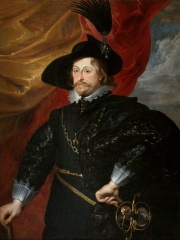
5. Władysław IV Vasa (1595 - 1648)
With an HPI of 76.47, Władysław IV Vasa is the 5th most famous Polish Politician. His biography has been translated into 52 different languages.
Władysław IV Vasa or Ladislaus IV (9 June 1595 – 20 May 1648) was King of Poland, Grand Duke of Lithuania and claimant of the thrones of Sweden and Russia. Born into the House of Vasa as a prince of Poland and of Sweden, Władysław IV was the eldest son of Sigismund III Vasa and Sigismund's first wife, Anna of Austria. Władysław was elected as the tsar of Russia by the Seven Boyars in 1610, when the Polish army captured Moscow, but did not assume the throne because of his father's position and a popular uprising. Nevertheless, until 1634, he used the titular title of grand duke of Moscow. Following his election as king of Poland and grand duke of Lithuania in 1632, he was largely successful in defending the Polish–Lithuanian Commonwealth against foreign invasion, most notably in the Smolensk War of 1632–1634 in which he participated personally. He supported religious tolerance and carried out military reforms, such as the founding of the Commonwealth Navy. Władysław was also a renowned patron of the arts and music. He gained fame by defeating the Ottoman Empire, strengthening royal power, and reforming the Commonwealth's political system, although he failed at reclaiming the Swedish throne. Despite that failure, his personal charisma and popularity among all segments of society contributed to relative internal calm in the Commonwealth. He died without a legitimate son and was succeeded to the Polish-Lithuanian throne by his half-brother, John II Casimir Vasa. Władysław's death marked the end of relative stability in the Polish–Lithuanian Commonwealth, as conflicts and tensions that had been growing over several decades came to a head with devastating consequences. The Khmelnytsky Uprising in the east (1648) and the subsequent Swedish invasion ("the Deluge", 1655–1660) weakened the country and diminished Poland's status as a regional power. For that reason, Władysław's reign was seen in following decades as a bygone golden era of stability and prosperity.

6. Sigismund II Augustus (1520 - 1572)
With an HPI of 76.41, Sigismund II Augustus is the 6th most famous Polish Politician. His biography has been translated into 52 different languages.
Sigismund II Augustus (Polish: Zygmunt II August, Lithuanian: Žygimantas Augustas; 1 August 1520 – 7 July 1572) was King of Poland and Grand Duke of Lithuania, the son of Sigismund I the Old, whom Sigismund II succeeded in 1548. He was the first ruler of the Polish–Lithuanian Commonwealth and the last male monarch from the Jagiellonian dynasty. Sigismund was elder of two sons of Italian-born Bona Sforza and Sigismund the Old, and the only one to survive infancy. From the beginning he was groomed and extensively educated as a successor. In 1529 he was chosen as king in vivente rege election while his father was still alive. Sigismund Augustus continued a tolerance policy towards minorities and maintained peaceful relations with neighbouring countries, with the exception of the Northern Seven Years' War which aimed to secure Baltic trade. Under his patronage, culture flourished in Poland; he was a collector of tapestries from the Low Countries and collected military memorabilia as well as swords, armours and jewellery. Sigismund Augustus' rule is widely considered as the apex of the Polish Golden Age; he established the first regular Polish navy and the first regular postal service in Poland, known today as Poczta Polska. In 1569, he oversaw the signing of the Union of Lublin between Poland and the Grand Duchy of Lithuania, which formed the Polish–Lithuanian Commonwealth and introduced an elective monarchy. Sigismund Augustus married three times; his first wife, Elizabeth of Austria, died in 1545 at just eighteen. He was then involved in several relationships with mistresses, the most famous being Barbara Radziwiłł, who became Sigismund's second wife and Queen of Poland in spite of his mother's disapproval. The marriage was deemed scandalous and was fiercely opposed by the royal court and the nobility. Barbara died five months after her coronation, due to heavy illness. Sigismund finally wedded Catherine of Austria. Neither marriage resulted in living children. Sigismund Augustus was the last male member of the Jagiellonian dynasty. Following the death of his sister Anna in 1596 the Jagiellonian dynasty came to an end.

7. Wojciech Jaruzelski (1923 - 2014)
With an HPI of 76.03, Wojciech Jaruzelski is the 7th most famous Polish Politician. His biography has been translated into 76 different languages.
Wojciech Witold Jaruzelski ( VOY-chekh yah-roo-ZEL-skee; Polish: [ˈvɔjt͡ɕɛx ˈvʲitɔlt jaruˈzɛlskʲi] ; 6 July 1923 – 25 May 2014) was a Polish military general, politician and de facto leader of the Polish People's Republic from 1981 until 1989, and a military dictator from 13 December 1981 until 22 July 1983. He was the First Secretary of the Polish United Workers' Party between 1981 and 1989, making him the last leader of the Polish People's Republic. Jaruzelski served as Prime Minister from 1981 to 1985, the Chairman of the Council of State from 1985 to 1989 and briefly as President of Poland from 1989 to 1990, when the office of President was restored after 37 years. He was also the last commander-in-chief of the Polish People's Army, which in 1990 became the Polish Armed Forces. Born to Polish nobility in Kurów in eastern (then-central) Poland, Jaruzelski was deported with his family to Siberia by the NKVD after the invasion of Poland. Assigned to forced labour in the Siberian wilderness, he developed photokeratitis which forced him to wear protective sunglasses for the rest of his life. In 1943, Jaruzelski joined the newly created First Polish Army and fought alongside the Soviets against Nazi Germany in the Eastern Front, most notably in the liberation of Warsaw and in the Battle of Berlin. Following the Polish October and the expatriation of Marshal Konstantin Rokossovsky back to the Soviet Union, Jaruzelski became the chief political officer of the Polish People's Army and eventually Polish Minister of Defence in 1968. Jaruzelski became the First Secretary of the Polish United Workers' Party and leader of Poland after the brief one-year term of Stanisław Kania. Kania's predecessor, Edward Gierek, left Poland indebted by accepting loans from foreign creditors and the country's economy, rocked by strikes, was unstable by the time Jaruzelski became head of state. As Poland headed towards insolvency, rationing was enforced due to shortages of basic goods, which only contributed to the tense social and political situation. The declining living and working conditions triggered anger among the masses and strengthened anti-Communist sentiment; the Solidarity union was also gaining support, which worried the Polish Central Committee and the Soviet Union, which viewed Solidarity as a threat to the Warsaw Pact. Fearing a Soviet intervention similar to those in Hungary (1956) and Czechoslovakia (1968), Jaruzelski imposed martial law in Poland on 13 December 1981 to crush the anti-communist opposition. The military junta, curfew and travel restrictions lasted until 22 July 1983. By the mid-1980s, censorship lost its importance and the authority of the United Workers' Party disintegrated, allowing more freedom of expression in Poland. During the revolutions of 1989 in Central and Eastern Europe, Jaruzelski supported the change of government for the benefit of the country and resigned after the Polish Round Table Agreement, which led to multi-party elections in Poland. He briefly served as President of Poland from July 1989 but exercised no real power and, in the 1990 Polish presidential election, Lech Wałęsa succeeded him as the first President elected in a popular vote. Having served as the country's leader during its turbulent final years of Communist rule, Jaruzelski remains a controversial figure in Poland to this day. He was praised for allowing the country's peaceful transition into democracy, but was also fiercely criticized by contemporaries for his imposition of martial law, including his government's violent suppression of protests and imprisonment of thousands of opposition activists without definite charges, among other human rights violations.

8. Vladislaus II of Hungary (1456 - 1516)
With an HPI of 76.02, Vladislaus II of Hungary is the 8th most famous Polish Politician. His biography has been translated into 47 different languages.
Vladislaus II, also known as Vladislav, Władysław or Wladislas (Hungarian: II. Ulászló; Czech: Vladislav Jagellonský; Croatian: Vladislav II. Jagelović; Slovak: Vladislav II. Jagelovský); (1 March 1456 – 13 March 1516), was King of Bohemia from 1471 to 1516 and King of Hungary and King of Croatia from 1490 to 1516. As the eldest son of Casimir IV Jagiellon, he was expected to inherit the Crown Kingdom of Poland and adjacent Grand Duchy of Lithuania. George of Poděbrady, the Hussite ruler of Bohemia, offered to make Vladislaus his heir in 1468. George needed Casimir's support against the rebellious Roman Catholic noblemen and their ally King of Hungary Matthias Corvinus. The Diet of Bohemia elected Vladislaus king after George's death, but he could rule only Bohemia proper because Matthias, whom the Roman Catholic nobles had elected king, occupied adjacent Moravia, and further east of Silesia in southeastern Germany and both Lusatias. Vladislaus tried to reconquer the four provinces with his father's assistance but was repelled by Matthias. Vladislaus and Matthias divided the lands of the Crown of Bohemia at the Peace of Olomouc in 1479. The estates of the realm had strengthened their position during the decade-long Bohemian-Hungarian War (1468–1478) known as the war between both kings. Vladislaus's attempts to promote the Roman Catholics caused a rebellion in the capital of Prague and other towns in 1483 that forced him to acknowledge the dominance of the Hussites in the municipal assemblies. The Diet confirmed the right of the Bohemian noblemen and commoners to adhere freely to the religious faith of Hussitism or Roman Catholicism in 1485. After Matthias seized the Silesian duchies to grant them to his illegitimate son, John Corvinus, Vladislaus made new alliances against him in the late 1480s. Vladislaus, whose mother, Elizabeth of Austria (1436–1505), was the sister of Matthias's predecessor, laid claim to Hungary after Matthias's death. The Diet of Hungary elected Vladislaus king after his supporters had defeated John Corvinus. The other two claimants, Maximilian of Austria (Holy Roman Emperor) and Vladislaus's brother, John I Albert, invaded Hungary, but they could not assert their claim and so made peace with Vladislaus in 1491. He settled in Buda, which enabled the Estates of Bohemia, Moravia, Silesia and both Lusatias to take full charge of state administration. As he had in Bohemia, Vladislaus always approved the decisions of the Royal Council in Hungary, hence his Hungarian nickname "Dobzse László" (Czech: král Dobře, Latin: rex Bene – "King Very Well", from Polish: dobrze). The concessions that he had made before his election prevented the royal treasury from financing a standing army, and Matthias's Black Army of Hungary was dissolved after a rebellion. However, the Ottoman Empire to the southeast made regular raids against the southern border in the Balkan peninsula and annexed territories in adjacent Croatia.

9. Casimir III the Great (1310 - 1370)
With an HPI of 75.79, Casimir III the Great is the 9th most famous Polish Politician. His biography has been translated into 58 different languages.
Casimir III the Great (Polish: Kazimierz III Wielki; 30 April 1310 – 5 November 1370) reigned as the King of Poland from 1333 to 1370. He also later became King of Ruthenia in 1340, retaining the title throughout the Galicia–Volhynia Wars. He was the last Polish king from the Piast dynasty. Casimir’s reign was marked by a pragmatic foreign policy that prioritized stability over military expansion. He strengthened the Polish army and normalized relations with the Kingdom of Bohemia as well as the Teutonic Order, often through treaties and legal arbitration rather than war. While accepting the loss of Silesia to Bohemia stemming from ducal fragmentation, he successfully expanded Polish influence eastward, annexing Red Ruthenia, which increased the kingdom’s territory, population, and economic potential. These diplomatic choices allowed Poland to avoid costly conflicts and focus on internal consolidation. Domestically, Casimir undertook extensive legal and administrative reforms that laid the foundations of a more centralized state. He codified Polish law in the Statues of Wiślica and Piotrków, reducing legal division and reinforcing royal authority. His reforms of the judiciary gained him the unofficial title "the Polish Justinian". His reign saw the growth of towns under Magdeburg Law, improvements in taxation and administration, and significant investment in infrastructure, including the construction of stone castles and fortified towns. Casimir was also known for confirming and extending protections for Jewish communities, building on earlier privileges and fostering economic development through trade and finance. He also encouraged the Jews to settle in great numbers. Casimir III was a notable patron of learning and culture, most famously founding the University of Kraków in 1364, which became a lasting center of scholarship in Central Europe and remains one of the oldest institutions of higher learning in the world. Despite his achievements, he left no legitimate male heir, and upon his death the Polish crown passed to his nephew, Louis I of Anjou, thus ending the centuries-long Piast dynasty’s rule and introducing a personal union with Hungary. Casimir’s legacy endured, however, in the strengthened institutions, expanded territory, and relative prosperity of the Polish state, securing his reputation as one of Poland’s most effective and influential medieval monarchs.
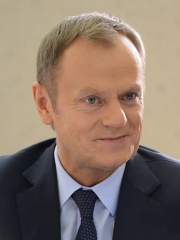
10. Donald Tusk (b. 1957)
With an HPI of 75.38, Donald Tusk is the 10th most famous Polish Politician. His biography has been translated into 90 different languages.
Donald Franciszek Tusk (born 22 April 1957) is a Polish politician and historian who has served as the prime minister of Poland since 2023, previously holding the office from 2007 to 2014. Tusk was President of the European Council from 2014 to 2019 and led the European People's Party from 2019 to 2022. He co-founded the Civic Platform (PO), one of the dominant Polish political parties, and has been its longtime leader – from 2003 to 2014 and again from 2021 to 2025, when it merged into the Civic Coalition (KO) party. He is the longest-serving prime minister of the Third Polish Republic. Tusk has been officially involved in politics since 1989, having co-founded multiple political parties, such as the free market–oriented Liberal Democratic Congress party (KLD). He first entered the Sejm in 1991 but lost his seat in 1993. In 1994, the KLD merged with the Democratic Union to form the Freedom Union. In 1997, Tusk was elected to the Senate and became its deputy marshal. In 2001, he co-founded another centre-right liberal conservative party, the PO, and was again elected to the Sejm, becoming its deputy marshal. Tusk stood unsuccessfully for President of Poland in the 2005 election and would also suffer defeat in the 2005 Polish parliamentary election. Leading the PO to victory at the 2007 parliamentary election, he was appointed prime minister, and scored a second victory in the 2011 election, becoming the first Polish prime minister to be re-elected since the fall of communism in 1989. In 2014, he left Polish politics to accept appointment as president of the European Council. The Civic Platform would lose control of both the presidency and parliament to the rival Law and Justice (PiS) party in the 2015 Polish presidential election and 2015 Polish parliamentary election. Tusk was President of the European Council until 2019; although initially remaining in Brussels as leader of the EPP, he later returned to Polish politics in 2021, becoming leader of the Civic Platform again. In the 2023 election, his Civic Coalition won 157 seats in the Sejm to become the second-largest bloc in the chamber. Following the president-appointed prime minister Mateusz Morawiecki's failure to secure a vote of confidence on 11 December, Tusk was elected by the Sejm to become prime minister for a third time. His cabinet was sworn in on 13 December, ending eight years of government by the PiS party. Having been the longest-serving prime minister of the Third Republic, Tusk oversaw in his first term the reduction and digitization of the public sector, wishing to present himself as a pragmatic liberal realist and technocrat. In the lead-up to the co-organization by Poland of Euro 2012, he invested strongly in infrastructure, expanding the highway network at the cost of the rail sector. In his second term, various scandals, unfulfilled promises and a cooling of the economy in 2012–2014 as his European debt crisis-related austerity policies led to a drop in public support. In the landscape dominated by the PiS after its electoral victories, as an influential holdout he opposed what he considered its democratic backsliding. Returning to power in 2023, he has focused on reforming the judiciary and warming relations between Poland and the EU. Since then, as PM, Tusk has continued aid to Ukraine after the Russian invasion. In 2024, he surprised the public with his appropriation of right-wing themes, such as opposition to illegal migration, prioritizing border security, going as far as to suspend the right of asylum for those who illegally cross the Belarus–Poland border.
People
Pantheon has 278 people classified as Polish politicians born between 379 and 1989. Of these 278, 63 (22.66%) of them are still alive today. The most famous living Polish politicians include Lech Wałęsa, Donald Tusk, and Egon Krenz. The most famous deceased Polish politicians include Paul von Hindenburg, David Ben-Gurion, and Lech Kaczyński. As of April 2024, 12 new Polish politicians have been added to Pantheon including Karol Nawrocki, Grzegorz Braun, and Małgorzata Handzlik.
Living Polish Politicians
Go to all RankingsLech Wałęsa
1943 - Present
HPI: 82.76
Donald Tusk
1957 - Present
HPI: 75.38
Egon Krenz
1937 - Present
HPI: 72.28
Bronisław Komorowski
1952 - Present
HPI: 70.52
Jarosław Kaczyński
1949 - Present
HPI: 69.73
Andrzej Duda
1972 - Present
HPI: 69.70
Aleksander Kwaśniewski
1954 - Present
HPI: 66.89
Janusz Korwin-Mikke
1942 - Present
HPI: 63.27
Mateusz Morawiecki
1968 - Present
HPI: 63.10
Karol Nawrocki
1983 - Present
HPI: 63.02
Ewa Kopacz
1956 - Present
HPI: 62.99
Prince Franz Wilhelm of Prussia
1943 - Present
HPI: 62.85
Deceased Polish Politicians
Go to all RankingsPaul von Hindenburg
1847 - 1934
HPI: 81.91
David Ben-Gurion
1886 - 1973
HPI: 81.57
Lech Kaczyński
1949 - 2010
HPI: 77.12
Władysław IV Vasa
1595 - 1648
HPI: 76.47
Sigismund II Augustus
1520 - 1572
HPI: 76.41
Wojciech Jaruzelski
1923 - 2014
HPI: 76.03
Vladislaus II of Hungary
1456 - 1516
HPI: 76.02
Casimir III the Great
1310 - 1370
HPI: 75.79
Sigismund I the Old
1467 - 1548
HPI: 75.06
Władysław III of Poland
1424 - 1444
HPI: 74.96
Zbigniew Brzezinski
1928 - 2017
HPI: 74.64
John II Casimir Vasa
1609 - 1672
HPI: 74.33
Newly Added Polish Politicians (2025)
Go to all RankingsKarol Nawrocki
1983 - Present
HPI: 63.02
Grzegorz Braun
1967 - Present
HPI: 56.30
Małgorzata Handzlik
1965 - Present
HPI: 42.93
Przemysław Gosiewski
1964 - 2010
HPI: 42.71
Magdalena Ogórek
1979 - Present
HPI: 40.54
Adam Wiercioch
1980 - Present
HPI: 39.12
Miłosz Bernatajtys
1982 - Present
HPI: 36.84
Damian Janikowski
1989 - Present
HPI: 34.96
Michał Jurecki
1984 - Present
HPI: 34.45
Joanna Leszczyńska
1988 - Present
HPI: 34.16
Natalia Czerwonka
1988 - Present
HPI: 33.75
Łukasz Pawłowski
1983 - Present
HPI: 33.26
Overlapping Lives
Which Politicians were alive at the same time? This visualization shows the lifespans of the 25 most globally memorable Politicians since 1700.

